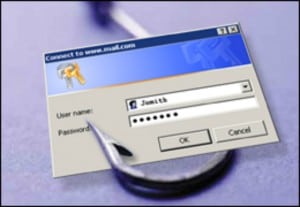 Beware – phishing and spear phishing scams can rob you of your identity and your money, and can lead you into debt if you fall victim to such scams. Here’s how to recognize phishing and spear phishing scams and what do if you’ve received a suspect email.
Beware – phishing and spear phishing scams can rob you of your identity and your money, and can lead you into debt if you fall victim to such scams. Here’s how to recognize phishing and spear phishing scams and what do if you’ve received a suspect email.
What is a phishing scam? Phishing email messages are designed to steal your identity which is ultimately used to commit fraud. They ask for personal data, or direct you to websites or phone numbers to call where they ask you to provide personal data. The messages may appear to be from organizations you do business with – banks, insurance companies and even the CRA. They might even threaten to close your account or take other action if you don’t respond.
How can you recognize a phishing email message? Unfortunately many of us receive several phishing emails per day and they can appear to be perfectly legitimate. Here are some examples of phishing messages. (OnGuardOnline.gov)
- “We suspect an unauthorized transaction on your account. To ensure that your account is not compromised, please click the link below and confirm your identity.”
- “During our regular verification of accounts, we couldn’t verify your information. Please click here to update and verify your information.”
- “Our records indicate that your account was overcharged. You must call us within 7 days to receive your refund.”
Banks, insurance companies and the CRA will NEVER send you an email asking for personal information or asking you to confirm your identity. Legitimate businesses NEVER ask you to send sensitive information through insecure channels. The only reason for phishing emails to gather personal information for the sake of committing fraud.
How can you protect yourself from phishing scams?
- Delete emails, texts, and pop-up messages that ask for your personal or financial information.
- Don’t call phone numbers provided in the phishing message.
- Don’t click on links in the suspect email even if the message seems to be from an organization you do business with and trust.
- Install anti-virus software, spyware filters, email filters and firewall programs.
What should you do if you’ve received a phishing email? Contact the financial institution, government office or company immediately with your suspicions and report it to the Canadian Anti-Fraud Centre at 1-888-495-8501 or info@antifraudcentre.ca.
What is spear phishing? Spear phishing is a targeted email scam with the sole purpose of obtaining unauthorized access to sensitive data. Unlike phishing scams, which cast broad, scatter-shot attacks, spear phishing hones in on a specific group or organization. The intent is to steal intellectual property, financial data, trade or military secrets and other confidential data. (Kaspersky Lab)
The Canadian Anti-Fraud Centre reports that currently, Canadian Financial Institutions and Investment brokers are receiving fraudulent email requests from existing clients requesting that money be transferred from their account usually to a foreign account. This scam is having a severe financial impact on the Canadian financial system.
We hope that this information will prevent you from falling victim to phishing and spear phishing scams. Unfortunately many have been taken in and are paying dearly for their mistake. If you find yourself in financial difficulties contact Ira Smith Trustee & Receiver Inc. With a solid financial plan for dealing with your debts we can help you get back on track to living a debt free life Starting Over, Starting Now.
